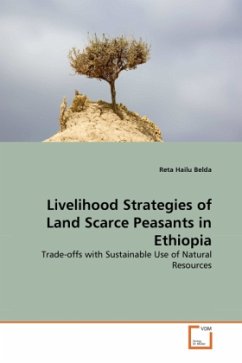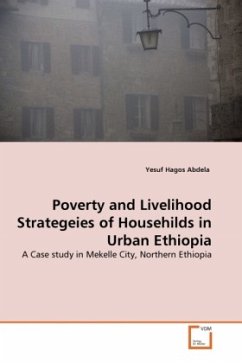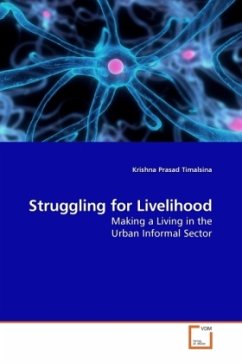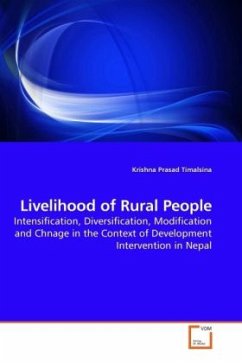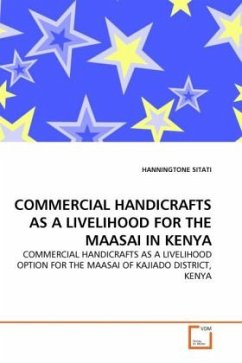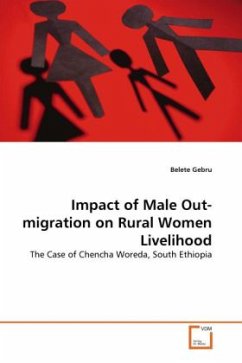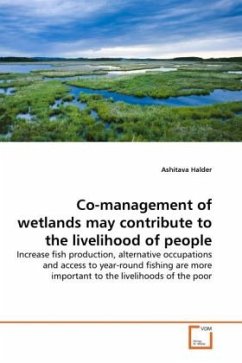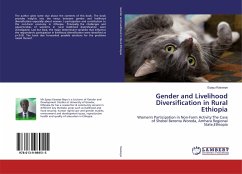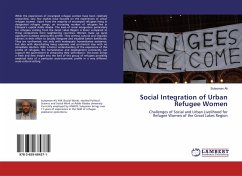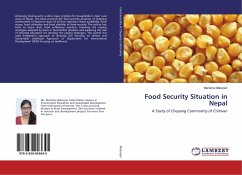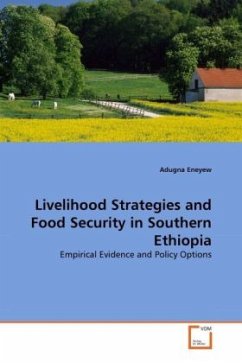
Livelihood Strategies and Food Security in Southern Ethiopia
Empirical Evidence and Policy Options
Versandkostenfrei!
Versandfertig in 6-10 Tagen
45,99 €
inkl. MwSt.

PAYBACK Punkte
23 °P sammeln!
Livelihood strategies are the combination of activities that people choose to undertake in order to achieve their livelihood goals. The understanding of determinants of choice of strategies by rural households has become central to poverty reduction in recent years. With the premises that there is no problem of underdevelopment that can be more serious than food insecurity; this study brings empirical explanation on livelihood strategies and the factors behind people's decisions; to reinforce the positive aspects of these strategies in the struggle of achieving food security, The unique featur...
Livelihood strategies are the combination of activities that people choose to undertake in order to achieve their livelihood goals. The understanding of determinants of choice of strategies by rural households has become central to poverty reduction in recent years. With the premises that there is no problem of underdevelopment that can be more serious than food insecurity; this study brings empirical explanation on livelihood strategies and the factors behind people's decisions; to reinforce the positive aspects of these strategies in the struggle of achieving food security, The unique feature of this research is that it employed both qualitative and quantitative analytical tools; it presents concepts on livelihood approaches, food security concepts and measures. It therefore provides basic procedures for researchers to conduct livelihood research within the Sustainable Livelihood Framework. Moreover, the findings of the study will benefit policy makers and planners on actions to be taken for enhancing the livelihood capability of the poor in order to mitigate the problem of food insecurity.



